 Stephen Geller Katz LCSW-R
Stephen Geller Katz LCSW-R
Misophonia Cognitive Retraining Therapy
 Stephen Geller Katz LCSW-R
Stephen Geller Katz LCSW-RMisophonia Cognitive Retraining Therapy
Misophonia Cognitive Retraining Therapy, as featured on the MTV True Life episode: “I Have Misophonia” premiering Friday, December 16th, 7:00 PM EST. See Clip >
|
|
|
| Moderate to severe anxiety triggered by chewing sounds, including: | ||
|
|
|
You may also be affected by visual stimuli, such as repetitive foot or body movements, fidgeting or movement you observe out of the corners of their eyes. Intense anxiety, rage and avoidant behavior may develop as a result of misophonia.
 * Do you feel your family and friends don’t understand how much you suffer?
* Do you feel your family and friends don’t understand how much you suffer?
* Do you often feel you can just suffer through a social event where there is eating present only to find that you must “escape” before you have a panic attack?
* Do you find that some people are at first understanding and make some efforts not to make the triggering sounds in front of you, but soon forget and constantly have to be reminded, causing you to feel angry, anxious and depressed?
* Are you avoiding social activities that you enjoy because of the misophonia?
* Are you fearful of losing your job and/or is the misophonia effecting your job performance?
You may be a candidate for Misophonia Cognitive Retraining Therapy, or MCRT.
Stephen Geller Katz, LCSW-R, with over 20 years of clinical experience, a New York University graduate, developed Misophonia Cognitive Retraining Therapy and founded Misophonia Cognitive Center™ in response to the growing number of people with Misophonia coming to his private practice from audiologists and ENTs. He discovered that by helping people to retrain and reinterpret the thoughts around their Misophonia, anxiety and depression symptoms began to improve. But even more important so did the Misophonic trigger response.
How can we go about understanding the basics of misophonia? Misophonia is a complex and often misunderstood condition characterized by strong emotional and physiological reactions to specific sounds, commonly known as “trigger sounds.” These responses are not just mild annoyances—individuals with misophonia may experience intense anger, anxiety, panic, or even rage when exposed to certain noises. Though it remains underdiagnosed, awareness and research around misophonia are steadily growing, leading to more understanding and better treatment options.
 a
a
The term “misophonia” translates to “hatred of sound,” though sufferers don’t dislike all sounds—only specific ones that trigger a disproportionate emotional response. These triggers are often repetitive, human-generated sounds such as chewing, breathing, pen clicking, or throat clearing.
Misophonia is not classified as a hearing disorder, nor is it a psychiatric condition in the traditional sense. It is more accurately described as a neurophysiological response, wherein specific sounds are processed differently in the brain, particularly in areas associated with emotional regulation.
Misophonia triggers vary from person to person, but there are certain sounds that tend to be more commonly reported. Some of these include:
Interestingly, for many people, it’s not just the sound itself but the context that makes it worse—such as a specific person making the sound, or being in a quiet environment where the sound is more pronounced.
Misophonia can lead to a range of emotional and physical symptoms. These responses may begin suddenly and escalate quickly. Common symptoms include:
For some individuals, these reactions can severely impact social life, academic performance, work productivity, and even relationships.
The exact cause of misophonia is still being studied, but research suggests several potential contributing factors:
Currently, misophonia is not listed as a formal diagnosis in major diagnostic manuals such as the DSM-5. This can make getting a proper diagnosis difficult. Many individuals are misdiagnosed with anxiety disorders, OCD, or other mental health conditions, although they may experience overlapping symptoms.
Nonetheless, growing awareness has led to better identification of the condition by therapists who specialize in sensory and sound-related disorders.
Living with misophonia presents daily challenges, but there are several strategies that can make life more manageable:
Additionally, explaining misophonia to loved ones and coworkers can foster understanding and create more accommodating environments.
While there is no definitive cure for misophonia, there are effective treatments available that focus on managing the symptoms and reducing emotional reactivity:
If you’re struggling with misophonia, professional help can make a life-changing difference. Stephen Geller Katz, LCSW-R, is a licensed therapist and director of the Misophonia Cognitive Center™ in New York City. Dr. Katz specializes in misophonia treatment and offers personalized online sessions to help patients understand and manage their symptoms effectively.
All sessions are offered online, and Dr. Katz speaks five languages, making treatment accessible and convenient.
MISOPHONIA COGNITIVE CENTER™
Stephen Geller Katz LCSW-R
19 West 34th Street
New York, NY 10001
646-585-2251
How can we go about understanding the condition known as misophonia? Misophonia, a lesser-known but significant condition, can have a profound impact on an individual’s life. Characterized by intense emotional reactions to specific sounds, misophonia can lead to distress, anger, and anxiety. To better comprehend this condition, let’s explore its causes, symptoms, and common triggers.

While the exact causes of misophonia are not yet fully understood, researchers believe that it may be related to the way the brain processes certain sounds. Some individuals with misophonia have heightened sensitivity to particular frequencies or patterns in sounds, leading to strong emotional responses. Genetics may also play a role in misophonia, as it can run in families. It often emerges in adolescence or early adulthood and can persist throughout a person’s life.
Misophonia manifests through a range of emotional and physical symptoms when exposed to trigger sounds. These symptoms may include:
Misophonia triggers can vary from person to person, but some sounds are more commonly reported as triggers. These may include:
If you or someone you know is struggling with misophonia, it’s important to seek professional help. Misophonia treatment specialists, like Stephen Geller Katz at the Misophonia Cognitive Center™, can provide guidance and support for managing misophonia symptoms. Treatment options may include cognitive-behavioral therapy (CBT), exposure therapy, and coping strategies like mindfulness meditation.
Don’t let misophonia control your life. Reach out to the Misophonia Cognitive Center™ to start your journey toward better understanding and managing this condition.
MISOPHONIA COGNITIVE CENTER™
Stephen Geller Katz LCSW-R
646-585-2251
Dr. Katz offers online sessions and speaks five languages to ensure accessibility to effective treatment.
What are the main symptoms and treatments of misophonia? Misophonia is a condition where an individual can feel very uncomfortable because of various small and everyday sounds. They can strongly react to things like someone breathing or chewing too loudly.
The condition is rare enough that hearing about it for the first time can feel like the other person might just be saying that because they find the sound mildly annoying. However, the truth is that these small noises, like the clicking of a pen or someone smacking their lips, can make people want to scream or become visibly uncomfortable.
The very physical reactions that people can have to these everyday sounds are similar to what a person can feel during a flight or fight response. Therefore, they will often feel rage, panic, or anxiety.
Misophonia can be a difficult disorder to explain to people since they can easily think that people are just overreacting. However, people with the condition cannot change how they feel about these small noises. These sounds can be very triggering and can often lead to the person having a very severe reaction where they can become very uncomfortably angry or depressed.
The biggest symptom of misophonia is an individual’s very strong reaction to certain sounds. These sounds are usually very ones that you can hear every day, such as the leaves rustling, heavy breathing, or even clicking a pen.
Of course, there is a range of other stimuli that the individual can experience when they hear any of these triggering sounds. Some of the other symptoms can include:
These symptoms can be especially common among teens or adolescents who have been through very traumatizing experiences. The sounds that they hear can either remind them of their trauma or give them a feeling of uneasiness, which reminds them of their trauma.
Misophonia is a very recent condition that does not have any dedicated cure. Since the triggers can vary and have different reasons, researchers have needed help finding appropriate treatment for the condition.
However, many have concluded that some misophonia cases result from people having a traumatic experience. Therefore, they have tried different trauma treatment options to help people cope with their symptoms. Furthermore, since they cannot cure the underlying issue, they will focus on helping cure the symptoms.
Counter conditioning is the process of a therapist conditioning the brain to respond more positively to the different triggering sounds. In a study performed in 2015, this treatment was able to help a woman with very serious misophonia better control how she reacted to her trigger.
Misophonia is a very serious condition that can suddenly flare in individuals and affect how they spend the rest of their day.
If you’re struggling with misophonia and have very extreme reactions to small triggers, then consult Stephen Katz about misophonia treatment options. With over 20 years of experience, he developed cognitive retraining therapy specially suited towards those suffering with misophonia..
Stephen Geller Katz LCSW-R
646-585-2251
Tele-Video Sessions
Speaks 5 languages
International Patients Welcome
Do you feel like certain sounds manipulate your emotions and lead to aggressive reactions? If yes, then you might have misophonia, a disorder and syndrome developed from a strong hatred or dislike of specific sounds. In this post, you will learn about this condition and its symptoms.

(Source)
Misophonia is not a dangerous condition, but when you lose control, you could hurt people around you. Many people with misophonia describe the triggering sound as annoying. It puts them in a fight or flight situation and they start to panic. Also, people have different reactions to triggering sounds. For instance, if you feel angry after listening to a tapping sound, another person might just find it annoying.
Many people report that they feel irritation when they hear oral sounds such as the sound of chewing, eating, and breathing. Some also find the tapping sound irritating, including finger and keyboard tapping. The sound of windshield wipers can also be a trigger for some people.
For misophonia patients, the sound is not the only trigger as they find visual stimuli irritating as well. They respond to the repetitive motion of people as well such as wriggling of legs. According to experts the major trigger for misophonia patients is repetitive sound. The brain of these patients works differently and filters certain sounds more than others. That is why they struggle to process repetitive sound because their brain enhances that sound triggering an emotional response.
Professionals categorize this disorder from mild to severe depending upon your reaction. Furthermore, their response to the triggering sound leads to a wide range of emotional and physiologic responses. Here is some mild reactions triggered by misophonia:
If you develop a severe condition, you will experience these reactions:
The disorder can negatively influence your social life and you will hesitate to interact with people. Many patients develop anticipatory anxiety because of the triggering sounds. You can prevent triggers by adopting changes in your lifestyle. For instance, if you find chewing noise irritating, you should sit separately with your spouse, roommates, and family. However, if you have visual triggers, you can prevent reacting by leaving.
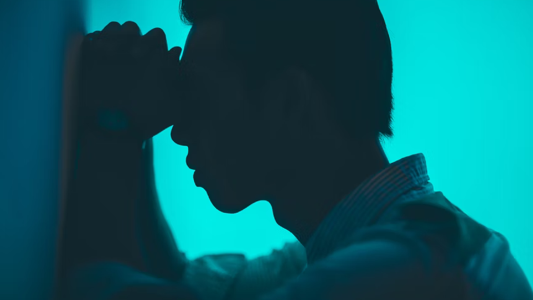
(Source)
Today, experts are conducting new research about identifying the causes of misophonia. A British team conducted research with 20 misophonia patients. Meanwhile, they included 22 participants without the condition. The experts played common trigger sounds such as breathing and eating in front of these participants. Also, they played disturbing sounds such as people screaming and babies crying and neutral sounds such as rain.
All the participants found disturbing and neutral sounds unpleasant. But, only the participants with misophonia found triggering sound irritating. This indicates that people with misophonia have specific trigger sounds, but they have the same reaction to other sound types.
Here are some effective treatment options that the doctor will recommend:
If certain sounds irritate you, contact a professional doctor in your city. Misophonia Cognitive Center is a reliable clinic in NYC to help people with Tinnitus, Misophonia, and other sound disorders. Stephen Geller Katz is a professional sound specialist with extensive experience in treating Misophonia patients. If you want to consult with Dr. Katz, you should give us a call at 646-585-2251.
Stephen Geller Katz LCSW-R
19 West 34th Street
Penthouse Floor
New York, NY 10001
646-585-2251
Do you find repetitive sounds such as pen clicking, feet tapping, and the clock ticking difficult to tolerate? If yes, then you may be suffering from misophonia. Another similar sound disorder is tinnitus, which causes ringing sensations in the ears. Let’s learn more about misophonia and sound disorders.

(Source)
Sniffing, chewing, and scratching are some sounds that trigger extreme emotions in people with misophonia. These sounds can be frustrating and annoying for anyone. That said, misophonia patients can’t control their emotions when they hear such sounds and tend to lash out. They have selective sound sensitivity syndrome, which makes these sounds unbearable for them.
You can easily identify a person with misophonia through various symptoms. Whenever they hear triggering sounds, they show a strong negative reaction to stop that sound. Their reaction might include different emotions, feelings, and physical sensations. Here are some symptoms of misophonia:
Misophonia patients experience these symptoms when they are teens or around puberty. Once they develop the condition, it stays with them throughout their life. If you have misophonia, you will experience harsh responses to certain sounds. People with this condition struggle to control their reactions and reduce the intensity of their anger.
If you have a hard time dealing with the sound, you should consult a professional doctor. The doctor will identify your triggers and identify an effective treatment for your condition.
Various people suffering from misophonia experience different triggers. The common trigger for this condition is chewing sound. Many statistics suggest that oral sounds are common triggers for misophonia. Here are some common triggers for misophonia:
According to various studies, misophonia can a symptom of an underlying condition. These conditions are:
Misophonia doesn’t have a proper treatment procedure, but you can manage your symptoms. Here are some ways to manage misophonia and sound disorders:
Tinnitus retraining therapy helps with tinnitus and other sound disorders as well. With the help of this technique, you can reduce the intensity of triggering sounds.
In this treatment, the doctor will blend the weaker sound with your favorite song or sound. According to a 2015 case study, a woman suffering from misophonia uses this technique to reduce sound trigger response.
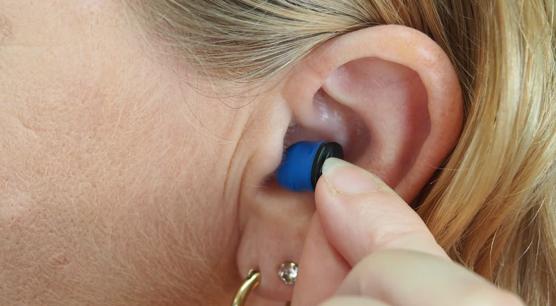
(Source)
There are many coping devices and techniques you can use to reduce the effect of the triggers. Here are some techniques:
You can consult a doctor to help you with misophonia. The doctor will identify the actual cause of the condition. Also, they will determine your triggers and recommend effective techniques. For instance, cognitive behavioral therapy to navigate physical sensations and emotions caused by irritating sounds.
Do you want to visit a doctor to help you with misophonia? If yes, then you should contact the Misophonia Cognitive Center™ in NYC. Our specialist Stephen Geller Katz has over 20 years of expeerience treating and curing people with sound disorders.
Misophonia Cognitive Center™
19 West 34th Street
Penthouse Floor
New York, NY 10001
646-585-2251
Tele-Video Sessions
Speak 5 languages
International Patients Welcome
The psychology of misophonia triggers a broad range of negative reactions in affected people. The triggers for this condition can be anything from rare or specific sounds to normal every day sounds like chewing, clicking, sniffling, etc.

It is important to note that there aren’t proper diagnostic criteria for misophonia. Besides, most people are generally unaware of this condition. If you experience disturbances in your daily life due to minor sounds and noises that are normal to everyone else, you may have misophonia. Keep in mind that we are not talking about fork on the plate or chalks on the board; these sounds are cringe-worthy to everyone.
The misophonic condition may appear as a minor issue with certain sounds, but it can be debilitating in reality. When an affected person hears certain sound triggers such as clicking or loud chewing, they feel a strong response stimulating in their mind. These sounds can trigger a variety of physiological or emotional responses such as annoyance, irritation, anger, panic, and the urgency to flee the scene. Although the reaction of misophonic people may appear unreasonable to others, the sounds quite possible make the affect people “go crazy.”
Frequently, loud chewing can set off a range of emotions, physiological responses, etc. There is a long list of visual and auditory triggers that lead to negative reactions in misophonic people. Some of them are as follows:
Visual stimuli reactions are similar to those that occur when a person encounters auditory triggers. Furthermore, repetitive motions are some of the main triggers in the misophonic condition. In reality, nearly all the misophonic sounds and triggers, whether auditory or visual, are repetitive in nature.
There are various ways a misophonic person may react. One important thing to know is that reactions can be mild to severe, and this is often the case irrespective of the repetitiveness of the auditory or visual triggers. You will find a range of physiological, emotional, and physical reactions from misophonia patients. Mild reactions can include anxiety, the need to flee, disgust, feeling uncomfortable, perspiration, etc.
On the other hand, severe responses can include fear, panic, emotional distress, anger, hatred, and rage. Such reactions can impact your social life, making you over-think the possibility of encountering such sounds and visual stimuli anywhere you go. In simpler words, when misophonia patients enter social gatherings or events, they carry anticipatory anxiety that makes them realize the potential of encountering the trigger sounds and noises. Overall, the affected person might also leave any family gathering, friend circles, and even interactions with the spouse, assuming the discomfort they may feel upon visual actions or auditory perceptions.
Misophonia is a highly auditory-based disorder. It involves brain areas that are responsible for processing emotional valence and sympathetic nervous system arousal. However, when experts realized and noticed this condition, they didn’t classify it as a psychiatric or psychological disorder. There were more classification issues once the mental health experts and scientists started exploring misophonia.
Nonetheless, the majority of the experts believe that misophonia may not be a psychological disorder. This has led to confusing debates over the symptoms of misophonia and its correlation with anxiety, manic depression, OCD, and other mental health disorders.
Some experts classify this condition as a neurophysiological disorder that relates to psychological consequences. In misophonia patients, there is a greater autonomic nervous system arousal. Following that, there is adverse emotional reactivity depending on the trigger sounds and their pattern.
There aren’t many specialists that can help with Misophonia. A doctor may prescribe medications, perform therapies, and engage in discussions regarding symptoms such as depression, loneliness, anxiety, etc. Regardless of the lack of official diagnosis and treatment options, there are many ways a psychologist can help you if you have Misophonia.
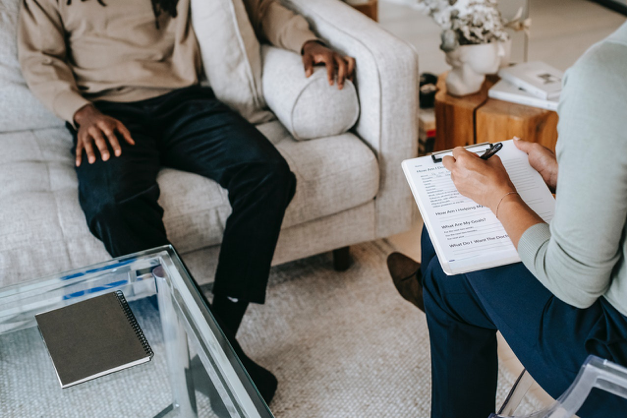
Developing coping strategies is the main focus when a psychologist is working with a Misophonic person. Here’s what they will attempt to do together:
Find the best treatment solutions for your misophonia condition at the Misophonia Cognitive Center™ with the help of Stephen Geller Katz LCSW-R. He offers a multi-disciplinary approach to treating and in some cases curing your misophonia symptoms. Keeping a log of when and how you experience misophonia triggers will help for better evaluation.
Call us at to set a convenient online video appointment to discuss your condition:
Reference Links:
https://www.webmd.com/brain/ss/slideshow-misophonia-overview
https://www.psychologytoday.com/us/blog/sleepless-in-america/201809/understanding-misophonia
https://www.webmd.com/mental-health/what-is-misophonia
https://www.misophoniainternational.com/category/research/
Do you have extreme sensitivity to certain sounds? Everyone reacts differently to a disturbing sound in one way or another. Imagine you’re sitting in a library, and a loud song starts playing suddenly. The chances are that it will have a slight effect on you. Now can you imagine simple sounds like chewing, walking, stomping, or even breathing making you sensitive? Well, many people are sensitive to such sounds, and at times, it gets so bad that they start reacting to them in a negative way.
There are certain symptoms that can detect you’re sensitive to sounds. In other words, you may have Misophonia or Hyperacusis. These are two conditions that are very common in both kids and adults. To learn more about sensitivity to sound, read further below.

(Source)
Misophonia is a condition in which a person literally starts to hate particular sounds to the point that they can’t bear it anymore, and that affects their behaviors. Sounds such as chewing, breathing, or a specific ringtone can trigger certain symptoms such as anxiety, fear, panic, and disgust. It becomes very difficult to live with a condition like Misophonia, especially when it comes in the way of your daily lives.
On the other hand, Hyperacusis is also a condition that causes you to become sensitive to sounds, and this leads to major panic attacks and intense pain. The cause of Hyperacusis derives from listening to excessively loud noise. Sounds such as dogs barking, chewing, lawnmowers, breathing, and any other repetitive sound can make both Misophonia and Hyperacusis patients sensitive to sounds.
There are a few things you can do and consider to deal with noise symptoms and reduce the impact the symptoms have on you. Mentioned below are a few things you can do to deal with noise sensitivity:
The moment you feel like you can’t bear certain sounds is the time you must receive professional help. A medical advisor will be the best to guide you through your problem and what you can do to deal with it. You may go to a behavioral health expert or therapist. You could also go to a counselor for counseling therapy, and they will guide you on how to deal with your symptoms.
This counseling session may also involve family members as the effect of sensitivity of sound also impacts the people living with you, and they must know how to deal with it as well. You may be recommended different forms of therapy such as Cognitive behavioral therapy (CBT) and Tinnitus Retraining Therapy (TRT).
This is something you may find difficult to do, but instead of running away or avoiding certain sounds you’re sensitive to, face them and allow yourself to deal with them. This type of strategy will create a relaxed environment wherein your mind and body are at peace. This way, you won’t allow your mind to be diverted by the sound.
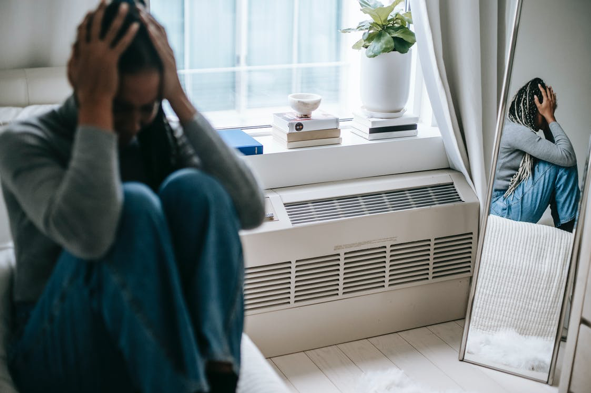
(Source)
It takes a lot of patience and practice to do something like this, but it is very helpful once you get the hang of it. The purpose of doing this is to develop an attitude towards the triggering sound and to get used to it. So instead of it having a negative impact on you, you can change your perspective. You can do this by listening to a particular sound for short periods of time and gradually increasing your exposure.
The more you try to block the noise by covering your ears or running into another room, the more you will fear triggering sounds. The more fear you have, the more likely these sounds will irritate you.
It’s like your brain registers the way you react to the sound, and whenever you hear it again, that’s the same way you deal with it. So start by being patient and face the sound a little at a time. This is a type of managerial therapy you can carry out on your own. The more you practice, the more you’ll feel insensitive towards a particular sound.
Extreme sensitivity to sound can get very frustrating at times and can have a negative impact on your day-to-day activities as well as relationships.
For the best diagnosis and treatment for extreme sensitivity to certain sounds, get in touch with one of the top specialists in the world at the New York Misophonia Cognitive Center.
Do you need misophonia therapy? Misophonia is a unique psychological condition that is related to the cognitive dysfunction of the brain. It is a relatively new disorder and so there is not enough research on it on the internet to help you. Many people from the medical science community disregard it as a legitimate disorder because there is still not a proper procedural diagnosis for it. One of the arguments raised by the skeptic community is that you cannot possibly tell what kinds of emotions are involved in it. You will see some resources referring to this condition as selective sound sensitivity syndrome. Misophonia can be detrimental for your mental health because it not only affects the person suffering from it, but also the people around the person.
Misophonia causes an immediate reaction to sound. The sound can be different from person to person and does not necessarily have to be loud. It makes you react involuntarily and repulsively to any specific sound or sight. The triggers are generally the softer sounds, often also repetitive in nature. Misophonia triggers an outburst of strong and involuntary emotions in a person. The most occurring emotions that the person displays are anger, disgust, frustration, resentment, disgust and hate towards the person making the sound. In extreme cases, the person suffering with Misophonia can cause harm to other people when triggered by the sound. However, you should know here that people with this condition rarely act out on these impulses.

(source)
Misophonia might not go away with time and so it does not get better as you get older. In fact it generally gets worse as time progresses. The intensity and severity of this condition can be stable for years and escalate at any point. As per the limited information on the condition, it can be fluctuating in nature. The reactions to the triggers can get better as you get older. This can be because once people mature they learn to deal with this disorder. Some people even modify their whole life in order to refrain from any moment that triggers them.
Treatment for Misophonia can be difficult. Since there is no diagnosis for it, there are no clinical procedures that can instantly cure it. The best and most effective methods available for the treatment of Misophonia are therapeutic treatments. Different therapies exist that treat Misophonia and some have even proven to have lasting positive effects on patients. Let us dive into the best ones that medical professionals usually recommend.
Since Misophonia is predominantly, a disorder that the brain is responsible for, cognitive behavioral therapy has a high chance of showing positive results. This therapy consists of multiple lasting sessions with a professional consultant. The consultant or therapist helps you analyze the problem in depth over multiple sessions of therapy. This has worked for patients that have a keen control over their conscience and have the ability to self evaluate. The main purpose of this therapy lies within the eradication of negative thoughts in the brain. The therapist in these sessions aims to have a transformative effect on the patient so that they are capable to self alleviate the emotional takeover.

(source)
This is a therapy for treating a different hearing disorder, which you would call Tinnitus. This disorder causes loud ringing sound in the ear. Tinnitus Retraining Therapy This therapy is a combination of multiple therapies that attempts to make chances in the brains dysfunctional neural wiring. A consultant performs multiple sessions to help change the perceptions of this disorder. The patient receives a complete overview of the auditory malfunction so that he can isolate any of the negative thoughts that he has with the disorder. Another method that this therapy may imply is sound therapy,
This therapy includes every possible therapy that causes physical and mental relaxation. The purpose of this therapy is to get you out of the anxious or distressed state and it was be helpful when a person with misophonia faces triggers. Physical therapies for this include acupuncture, Massages, exercise, sauna, chiropractics, and basically anything that will trigger the pleasure centers of your brain. Mental relaxation includes meditation. Meditation has proven to be incredible for the treatment of mental disorders and it can be easily performed anywhere without the help of any therapist, all you need is quite space. Misophonic patients can benefit greatly from emptying their mind and indulging in meditative states.
Misophonia is a relatively new disorder that is still debatable and so that is why it has lost all those years of being a subject to research. The research on this condition has been recent and so, there hasn’t been a real breakthrough in finding a real cure or effective treatment.
Treatments mentioned above have been useful regardless of the lack of research. If you are looking for treatment options for yourself or anyone else suffering from misophonia or it’s symptoms, call us at the Misophonia Cognitive Center™ and schedule a tele-session today.
Misophonia is primarily a mental disorder that causes irritation in response to a certain sounds. Since Misophonia is a relatively new disorder, the symptoms can be hard to distinguish. This type of situation has occurred in everyone’s life at a certain point and so this points to a naturally common occurrence. The thing that separates normality from abnormality is the severity of the symptom. A person with Borderline Misophonia or severe Misophonia displays a much more elaborate response to subtle nuances in the form of repetitive sounds.
The symptoms of the condition can be so severe that they impact the person’s whole life, making him/her unable to function on a daily basis. Simple noises, such as breathing, can invoke a threatening feeling in the person who has the sensitive sound syndrome. The symptomatic people who have a serious issue with sensitive sounds are much easier to identify because their immediate outbursts and breakdowns are easily visible.

(source)
Most common symptoms tend to lead to anger and frustration. The mechanism of how this may unfold in a person who suffers with Misophonia can be of different kinds. The first being the kind in which a person lashes out after being gradually provoked by the sounds that they are sensitive to. This takes place in a manner in which the repetitive noise starts to cause minor disruptions in the person’s mental state. The frustration gradually starts to build up until it reaches a tipping point. This is when the person with Misophonia cannot tolerate the tiny but deadly auditory havoc and lashes out.
In other instances, a person who suffers with minor Misophonia can display symptoms as just a verbal protest. One may simply ask you to stop whatever sound you are making in a displeasing manner. This is merely due to the overwhelming stimulation that is happening in the hypersensitive brain of the person who suffers from Misophonia. This can be either one noise or a couple of noises together that are triggering an emotional response in the person. Behavioral changes are the most common symptoms of Misophonia.
The behavioral changes in the people suffering from Misophonia are transformative processes often leading to anger and frustration. A behavioral change can start with any feeling that leads to anger that can ultimately lead to aggressive behavior. Some people initially feel disgusted while others feel annoyed and overwhelmed. So far, the doctors do not have a a consistent behavior pattern that they can use to diagnose the presence of Misophonia in people. The intensity of the outburst can also depend on other variables, like the environment, or the general personality of the person.
These behavioral changes are also invoked in people suffering from this disorder without actually being exposed to the disregarded noise. The basic act of thinking about certain noises can also result in the emergence of physiological and emotional pain. This is a fact that solidifies the propensity and relentlessness of the disorder. The following discussions have been aimed at all the emotional and mental disturbances and symptoms that Misophonia causes. However, where there are emotional and mental stimuli, the body responds to them by making a few changes in its workings.
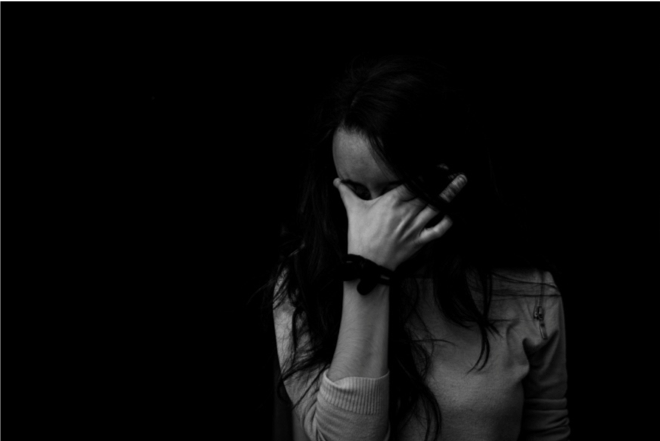
(source)
People with Misophonia also suffer from several physical conditions. The trigger of emotional response causes the brain to make hormonal changes in the body, which ultimately results in physical reactivity. Misophonia sends you in a state of fight or flight response. Our body uses the negative feedback encountered by our brain by simultaneously increasing our blood flow. Our body produces this counteractive response in times of fear or anger so that our muscles can receive more oxygenated blood. This allows the body to perform actions that are necessary to avoid the situation that’s causing this response. Another symptom of Misophonia is increased heartbeat, which is a result of emotional triggering. People with severe Misophonia may face these physical symptoms like increased blood pressure, rapid heartbeat, and heaviness in the chest.
A study found that 52.4 percent of participants with Misophonia were also diagnosed with obsessive compulsive disorder. The underlying message to this fact is that people with Misophonia do not share the same mental health of the general population. Being a victim to Misophonia could mean that you have other mental health problems that are even more threatening.
Contact Stephen Katz LCSW at the Misophonia Cognitive Center™ today. He is an expert in diagnosing and treating symptoms related to misophonia and sound disorders.
Misophonia Cognitive Center™
Stephen Katz LCSW
646-585-2251
Can You Cure Misophonia? Do you feel angry when people chew in front of you? Ever snapped at a person for breathing too loud? Or do you hate the sound of people sniffing, sighing, or snoring? If so, you may be suffering from misophonia. The literal meaning of this condition is hatred of sounds. Many people cringe and feel uncomfortable due to some noises as if they’re nails on a chalkboard. But even everyday sounds such as tapping, sniffing, chewing, and breathing are enough to trigger people with misophonia and illicit an intense negative response against it. If you experience such adverse reactions to everyday sounds, don’t blame yourself. In many cases, this condition worsens, and it disturbs your quality of life. If even being in a public space is enough to cause immense discomfort, it can become difficult for you to achieve your targets and goals.
You should learn more about this condition and possible treatment if you feel like certain sounds affect your mental health to the extent that you’re avoiding social situations.

(Source)
While the term means hatred of various sounds, it doesn’t imply that hating a certain sound means you have misophonia. For instance, if you only hate sounds like the scraping sound of a knife or fork on the surface of a plate, you might not suffer from this condition. Similarly, if you hate a sound or cringe due to a specific sound, it doesn’t mean you have misophonia.
Numerous health care professionals can diagnose misophonia. This includes psychiatric nurses, psychologists, language and speech therapists, audiologists, primary care providers, psychiatrists, social workers, physicians’ assistants, etc. After conducting an examination, they will recommend a physical examination and extensive medical interview for assessment. Another key aspect for diagnosing this condition is checking if you face other conditions that can affect hearing. This includes hearing loss due to age, hyperacusis (disability to stand normal environmental sounds), tinnitus (a continuous perception of sound because of abnormality in hearing), and auditory hallucinations (hearing voices and frequencies that don’t exist in reality).
This disease is linked with many other problems related to mental health, such as bipolar disorder, depression, anxiety disorder, obsessive-compulsive disorder, obsessive-compulsive personality disorder, various autism-spectrum disorders, and Asperger’s syndrome. Experts may misdiagnose misophonia patients with ADHD or attention deficit hyperactivity disorder. So the evaluating person will look for the sign of anxiety, manic depression, depression, behavioral disturbance, and many other mental health-related symptoms.
Symptoms of misophonia can occur due to various medical conditions or side effects of different medications. That is why health care professionals mostly perform routine tests at the time of initial evaluation to find other causes of the symptoms. Normally, you will require scans, x-rays, and other imaging studies. While examining, the professional may ask you various questions through self-test or standardized questionnaire to disqualify other diagnoses.
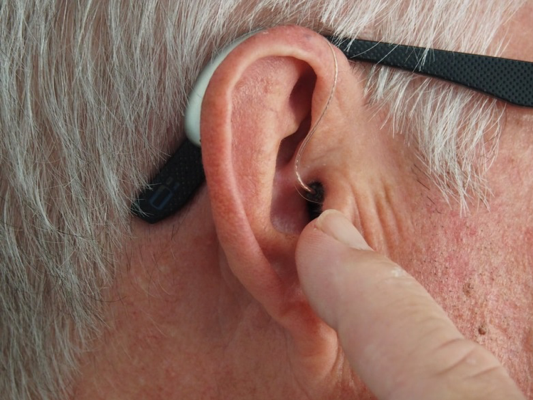
(Source)
Experts have yet to study misophonia thoroughly. Many experts know that this condition may occur after 12 years of age and have different severity. People with misophonia experience embarrassment. This can lead to them hiding their condition from the doctor. That is why it is hard to find out how many people suffer from misophonia.
Many healthcare providers are not aware of this condition so if you need proper treatment, visit our clinic. Here, you can learn more about the challenges of this condition and possible treatment options. Before diagnosing you with misophonia, our doctors will perform various medical interviews and conduct a physical examination of your ears.
A treatment dedicated to misophonia is not yet available, but various other treatments have shown positive effects in improving the patient’s quality of life. Here are the therapies that may help you in curing this disease:
This treatment helps in rewiring your brain and reducing the reactions of triggering sounds. This treatment involves the combination of sound therapy along with directive counseling. This treatment may take 12 to 24 months. With the help of intentional rethinking and practice, therapists teach positive association with the trigger sounds. The patient forms this association by listening to pleasant and triggering sounds together.
This treatment is normally for people with hyperacusis and tinnitus, but it has significant results for patients with misophonia. The main reason for TRT in misophonia patients is to create conditioning reflexes that are the reason for distress.
Experts prescribe this therapy along with TRT. In this therapy, a professional will modify your negative thoughts and try to decrease your symptoms. They will work by pairing the triggering sounds with a positive experience.
Many professional healthcare providers will advise avoiding any treatment that involves medication for this condition because this medication may become a habit and have negative side effects. But if other forms of therapy don’t provide relief, your doctor may prescribe a certain medication.
If you feel like you might have symptoms of misophonia or any other sound related condition, call us for a consultation at 646-585-2251. You can also visit our website for any further details regarding this condition.